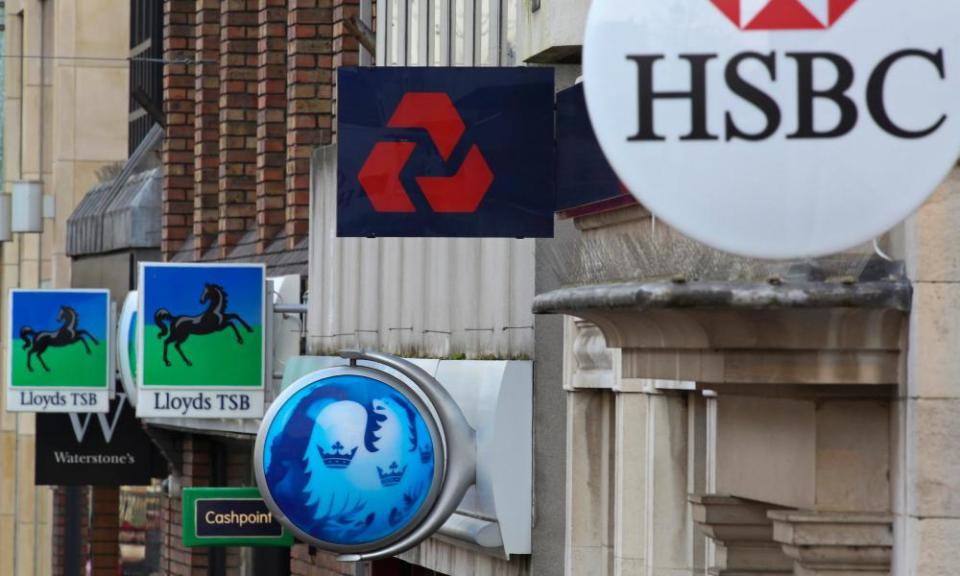UK banks could face new multibillion-pound claims after PPI ruling

Britain’s banks face the threat of a huge new PPI bill that could add billions of pounds to the £30bn already paid out in compensation, following a court ruling lauded by claims management companies as “hugely significant”.
The case opens the door to a renewed claims bonanza as it suggests that even if the PPI policy was not mis-sold, the buyer may still be able to reclaim because the scale of the commissions paid were excessively high.
While the ruling does not mean any more cash for people who have already received compensation, it may allow cases that have been rejected to be reconsidered. The ruling is likely to be appealed against but if it stands it presents a fresh PPI nightmare for Britain’s banks, after one claims expert said new payments could run into the tens of billions. Lloyds Bank has so far paid out £18.8bn for mis-selling claims, while Barclays has paid more than £9bn and RBS nearly £5bn.
Banks have been relying on a June 2019 “time-bar” on claims, agreed with the Financial Conduct Authority (FCA), as a way to cap the final cost of what has been the biggest compensation exercise in UK financial history. However, the new ruling threatens further large payouts.
The case at Manchester county court, involving a couple, Christopher and Joanne Doran, against Paragon Personal Finance, revolved around the issue of commission paid.
Since October 2017, banks have been told to adopt FCA guidance that followed a court ruling known as “Plevin” when dealing with PPI claims. Under the Plevin rule, if more than 50% of a consumer’s PPI’s payments went as commission and this was not explained to them at the time, they could claim back payments above that threshold, plus interest.
The average commission banks were paid was 67%, meaning millions more people sold PPI were entitled to money back.
Following the Plevin ruling, claimants who had their original mis-selling claims turned down were able to go back to their loan provider and demand they be re-examined.
In a ruling on the Doran case, the judge said the entire commission should be repaid plus interest – not only the commission above 50%. In doing so he rejected the FCA’s guidance, leading claims management firms to claim others will be entitled to new, higher payouts.
“This ruling is hugely significant and sets a new precedent,” Simon Evans, the chief executive of the Alliance of Claims Companies, which represents more than 50 claims firms, said.
Evans said that in total £50bn was paid by consumers to buy policies across the history of PPI selling. Once interest is added, the total figure is £80bn, he said, and that so far the banks had repaid £30bn. “I’ve seen a figure of £18bn as the extra amount that could be paid out as a result of this ruling,” he said, referring to a Financial Times [paywall] article. “But that might be too conservative. It could be as high as £30bn.”
The FCA said it did not recognise the £18bn figure. “We have always said that different courts could take a different approach. However, it remains our view that our approach has been fair and appropriate,” said a spokeswoman.
Paragon Banking Group said it was considering its legal position. A spokesman said: “We believe this decision is at odds with other cases heard recently and does not create a precedent. The Doran case is one of a handful of legacy cases for Paragon and we are considering our position regarding appeal.”
Anyone who has already received compensation for PPI will not be able to reopen their case or obtain further compensation as they have already had their premiums returned in full.
However, the ruling is likely to increase pressure on the FCA to remove the June 2019 time-bar on future claims. “There is now a compelling argument that the time-bar should be removed,” Evans said.
Regulators estimate that around 53m PPI policies have been sold. Around 45m of those were sold by banks, worth around £44bn. It is not clear how many of these policies were mis-sold – initial estimates by the FCA were that only three million people were affected – but since then more than 12 million people have received compensation.
Selling PPI was very profitable for banks. The FCA’s predecessor, the Financial Services Authority, highlighted one PPI policy sold alongside a mortgage that cost the customer £20,838 over the loan term, even though the maximum they could reclaim was £31,000, an illustration of the scale of profits involved that led banks to risk mis-selling.

 Yahoo Finance
Yahoo Finance 